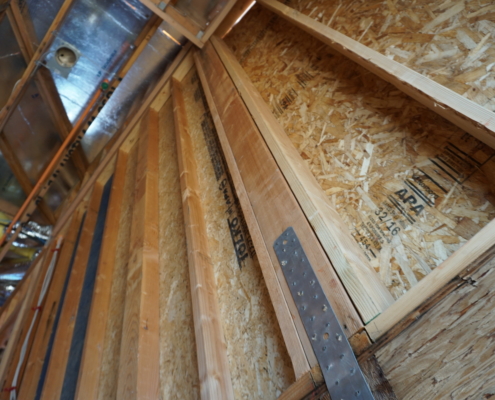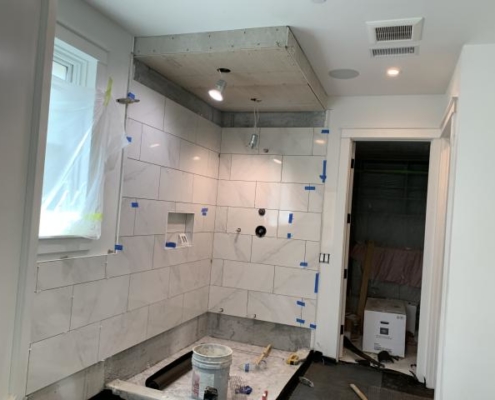Project Failure: Reasons and Remedies
By Taylor Miller, Assistant Project Specialist – OBA
Construction is an industry where attention to detail is of monumental importance. Something that gets overlooked in the early stages has the potential to be what causes a project to fail completely. Say you are at the initial stages of your development and are choosing your project location. You have done your zoning research, applied for and received your building permits, and decided on your floor plan and general contractor. The build team gets to the site and start prepping the land, but they come to find the soil is composition is 50% limestone. This makes digging utility trenches and rough grading the land a nightmare. Thorough research on all physical attributes of your potential site would have prevented any delays and your project would not be behind schedule as of day one. There are plenty of reasons a project could fall apart. Here are a few of the major issues you could run into, and some of the remedies that will steer you clear of major setbacks.
Reasons
Communication Barriers
Whether its construction or any other industry, communication is usually at the root of any issue. Lack of transparency between the general contractor, architect, and owner can lead to missed deadlines, blown budgets, and worst of all structural differences from what the plans describe. Infrequent site meetings will make room for a lapse in communication. There is also such a thing as “too many cooks in the kitchen.” This happens when there are multiple personnel attempting to take charge of a project and bark orders. It is important to have someone on site assuming the site manager role, but it just does not work when several team members try to take the lead. At the end of the day, when communication fails it generally costs the owner more money than what was budgeted.
Poor Documentation
To ensure that your project does not fall apart you will need to be diligent and organized with your documentation. Before any work gets done at the site, you should have binder full of permits, contracts, plans, schedules, and budgets. Even email communications should be printed or saved in some way. Stay away form making any verbal agreements or contracts. Some involved parties may find a verbal agreement sufficient, but chances are it is not their money on the line if that agreement isn’t executed by both parties. Get it in writing! Having your documentation squared away from the start of a project makes for a good start, but ongoing documentation is just as important. Knowing the differences between a line item transfer and a change order and how to file each of them are crucial to maintaining a healthy budget.
Incompetent Build/Design Team
Budgeting and planning can fall apart throughout the project via poor communication or documentation, but you could also simply have a poor budget and plans from the start. Typically, you can directly attribute this to the general contractor, architect, or other professional personnel. These are crucial roles in a project, and you must make sure that these parties are first competent and second acting in good faith. There is a lot of money in the construction industry and believe me there are plenty of horror stories out there where a contractor has blatantly and purposefully taken advantage of an owner, leaving them with a half built structure and no money to fund the rest of the build. Your build design team could also be great people, but just have no experience in building what you are asking for. This is a painful and expensive realization to make halfway through a project.
Remedies
Communicate!
Communication trumps all in the construction industry. Being heavily involved as an owner can help alleviate some of the communication misfires that happen naturally. Coordinate regular site meetings with your general contractor and have them bring you up to speed on the progress of your build. Establish a schedule at the beginning of a project that details when each phase of construction should be complete and when the site meetings will occur. Squeezing in a few random, unscheduled, visits to the site will also keep your contractor honest and will allow you to verify if all safety protocols are being followed. When you as the owner assume this managerial role, others will not feel compelled to do so and communication amongst all personnel will be smoother.
Contract Clauses
A great place to manage your risk throughout the course of a development is in the contract. Including clauses that protect your, your investment, and limit your personal liability are invaluable. Perhaps you enter a contract for a build and one of your sub-contractors decides to go on vacation, your project gets delayed, everyone is off schedule, and now you are bleeding money because you signed a contract with that sub and you can’t fire him. This is where you should have protected yourself in the contract with a ten day right to cancel clause that states if a contractor becomes absent for more than ten days, you can let him go and find someone else. Other important items to include it the contract are progress payment submittal requirements, change order/extended schedule notification, and owner’s option to verify proposes construction costs.
Diligently Vet Your Team
Hiring a contractor who was just the top result on your Google search might have you waking up in panic most days. On the flip side, being able to start a project with confidence that your general contractor is the best, most experience, and professionally qualified person in your area to complete your build means that you can rest easy. A degree of experience is required to properly vet a good contractor, but half of the battle is asking the right questions and anyone can do that. Ask them if they have built similar types or property in the past. Do they have any legal actions being taken against the now or have they in the past? Require them to provide a list of references rom subs they have worked with in the past.
Consider Hiring a Project Oversight Specialist
Ultimately poor project oversight results in project failure. OBA provides reliable project oversight from the beginning of the development process to the end. We have experience working on various types of properties throughout the nation. You can hire us to come on board for the entire duration of your build, or for specific tasks like vetting your contractor or budget development and review. The level of confidence you will have in your project development will be unmatched when you bring OBA on board to help manage your construction risks. The development process is one with a tight margin for error. Do not go it alone and risk a misstep. OBA is here to help you build with confidence.


